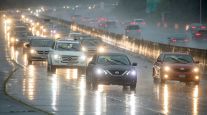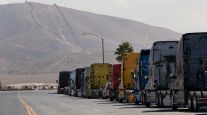California Voters Reject Gas Tax Repeal
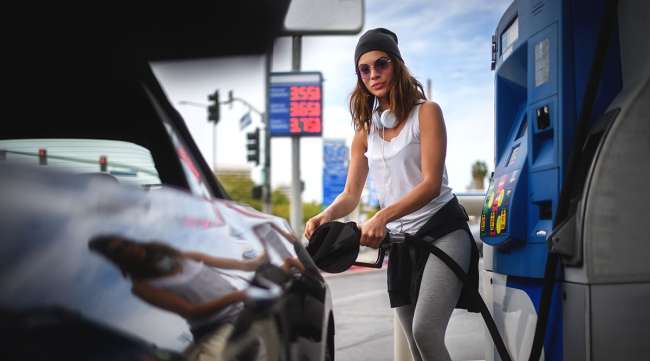
California voters on Nov. 6 rejected Proposition 6, a measure to repeal a recent increase in the state’s gas tax and one that, in many ways, determines the fate of California’s roads, bridges and transit.
The measure would have repealed a law passed last year, called SB1, that increased the tax on gasoline by 12 cents and the tax on diesel by 20 cents per gallon. The same law also increased registration fees by an average of $50 per vehicle and imposed an additional $100 fee for vehicles that don’t use gasoline.
At stake was not just the estimated $5.4 billion annually from those taxes and fees to pay for road, highway, bridge and transit repairs, but also how the state could raise money to pay for transportation improvements in the future. Supporters of the measure painted the repeal initiative as a David-versus-Goliath battle pitting the needs of working families against Sacramento special interests.
“It’s about whether working families will be given some breathing room and whether we can address the high cost of living in California,” said Carl DeMaio, a former San Diego city councilman who led the repeal effort. “That’s real money.”
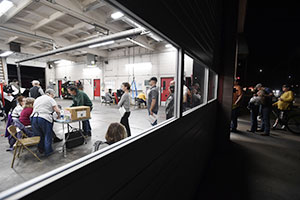
People lined up to vote in the Nov. 6 election. (David Paul Morris/Bloomberg News)
Opponents of the repeal, however, characterized it as a cynical political ploy to get more Republicans to vote in midterm elections — GOP gubernatorial candidate John Cox mentioned the measure in nearly every stump speech — and one that would have dangerous consequences for Golden State motorists.
Prop 6 would have required two-thirds of voters to approve any increase in fuel taxes or vehicle fees in the future, making it all that much harder to pay for roads, rails, bridges and buses, said Carl Guardino, a member of the California Transportation Commission, who opposed the repeal. Before SB1 was approved, the state was facing a $57 billion funding shortfall over the next 10 years to rehab the state’s crumbling roads and bridges.
“California voters are smart, and they don’t like to be deceived,” Guardino said. “The more it became clear what was at risk — the safety of our highways and bridges, the loss of funding for traffic relief and transit alternatives, the ongoing frustration of potholes and a lack of road and street maintenance — the more people saw through it.”
And, in the gridlocked Bay Area, voters were staunchly in favor of keeping the taxes and fees in place, with a supermajority of voters opposing the measure. Across the entire Bay Area, 69.6% of voters rejected the measure, with opposition to the repeal highest in San Francisco County, where 82% of voters opposed Prop 6, and lowest in Solano County, where 56% of voters rejected the measure.
Bob Braun, 73, of Martinez, said the money is critical for ongoing maintenance and repairs.
“I think it’s crazy that people will pay money to fix their cars, but they won’t pay money to fix the streets,” he said. “There have been some improvements on the streets that we typically use, but in general, they need maintenance.”
The state’s transportation commission, which reviews and oversees transportation funding in the state, already has approved more than 9,200 projects across the state funded by SB1. Of those, 6,500 have started construction, and about half of those were at risk of being delayed or defunded if Prop 6 passed, Guardino said.
Among the projects in the Bay Area at risk of losing funding were $730 million to help extend BART to downtown San Jose, $318.6 million for BART to buy new train cars so the agency can carry more passengers by running longer trains, $233 million for toll lanes on Highway 101, $164 million to help electrify Caltrain, $150 million for more AC Transit buses, and $67.5 million in pedestrian and bicycle improvements.
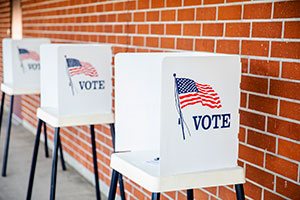
Getty Images
San Jose Mayor Sam Liccardo lauded the measure’s defeat, saying it will enable the Santa Clara Valley Transportation Authority to continue building its 6-mile BART extension underneath the city’s downtown.
“I’m grateful Californians recognize it’s time to stop kicking the can down the road and start investing in infrastructure projects like BART,” he said.
The state could achieve all of its road, bridge and highway plans, including what SB1 funded, if it dedicated 100% of the gas tax to performing repairs, DeMaio said. His campaign proposed an alternate plan that allows legislators to chose between using an estimated $2.3 billion surplus to retain Caltrans’ staff or to use that money, without staff, on transit, bicycle and pedestrian improvements, research, workforce training or other efforts.
But, even before the Nov. 6 election, DeMaio and supporters of the Prop 6 campaign had vowed to continue the fight, beginning with recalling Attorney General Xavier Becerra. Becerra approved ballot language DeMaio said intentionally misled voters by stating Prop 6 eliminates funding for transportation and road repairs, rather than eliminating taxes. Polling results showed voters would have supported a measure to repeal taxes and fees, he said.
“We are not going away, we must continue to fight to repeal the unfair gas tax,” DeMaio said, adding his campaign would get to work recalling Becerra. “There needs to be a price paid by the individuals responsible for this.”
Distributed by Tribune Content Agency, LLC


